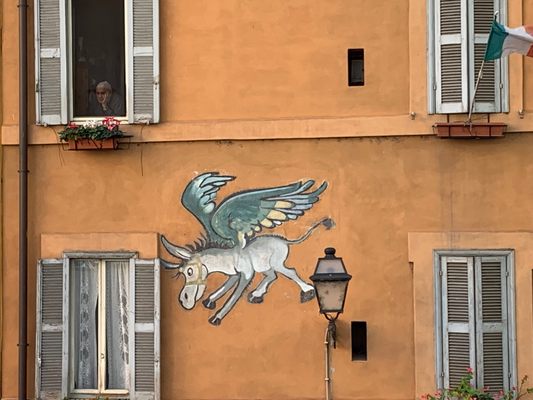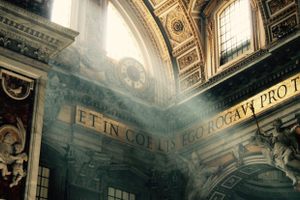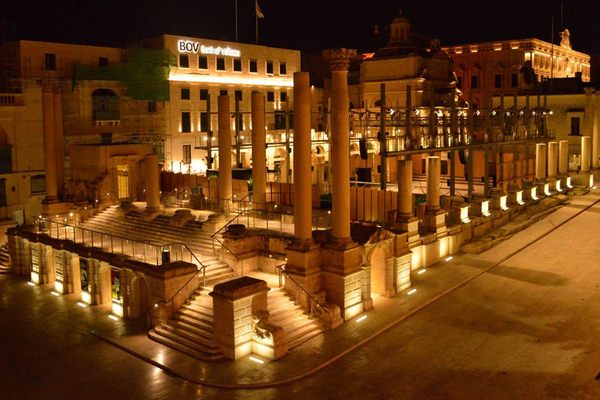About
Tor di Nona was once a thriving cultural hotspot. In the late 17th century Queen Christina of Sweden founded the Teatro Tordinona in the Roman neighborhood, much to the displeasure of the Pope. Though the neighborhood has changed and the original theater is now gone, a piece of rogue street art honors its legacy.
Teatro Tordinona was the site of much scandal. It was often packed with enthusiastic opera goers, but a series of papal decrees banned female singers and rowdy behavior from the audience. The theater was eventually shut down, and was replaced in 1829 by the Teatro Apollo (a work of the architect Valadier). Among other famous performances, two of Giuseppe Verdi's works were first premiered to the public at the Apollo.
But at the end of the 19th century, the construction of the Tiber's embankments, or muraglioni, led to the demolition of the historic theater. Now its memory only preserved in the inscription of the monumental fountain by the Tiber that you can spot across from the Flying Donkey graffito.
The disappearance of the theater led to a slow urban decay in the neighborhood. In the 1970s, its state was so unbearable that the local inhabitants, along with the young students from the Faculty of Architecture decided to raise awareness in a rather unconventional way: They started painting graffiti of utopias and ideal urban cities on the walls of the old buildings. These early writers included a young Isabella Rosellini and in the long run succeeded in restoring their neighborhood's dignity. Nowadays, all of the graffiti are gone save for one: a flying donkey, a symbol of that crazy utopian dream, which hovers in between the windows of one of these buildings. For those wishing to imagine what this display might have looked like, just across from the graffito, on the lower side of the road, the original writers, in 2013, painted a new mural based on the original ones.
Related Tags
Know Before You Go
Via Tor di Nona is at a lower level than the Lungotevere Tor di Nona.
Flavors of Italy: Roman Carbonara, Florentine Steak & Venetian Cocktails
Savor local cuisine across Rome, Florence & Venice.
Book NowCommunity Contributors
Added By
Published
February 25, 2020































